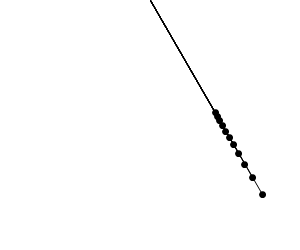A Month of Math Software – May 2011
Welcome to the 5th installment of A Month of Math software where I take a look at all things math-software related. If I’ve missed something then let me know in the comments section.
Open Source releases
SAGE, possibly the best open-source mathematics package bar-none, has seen an upgrade to version 4.7. The extensive change-log is here.
Numpy 1.60 has been released. Numpy is the fundamental package needed for scientific computing with Python and the list of changes from the previous version can be found in this discussion thread.
Version 1.15 of the GSL (GNU Scientific Library), a free and open source numerical library for C and C++, has been released. A copy of the change log is here.
Scilab, the premier open source alternative to MATLAB, has seen a new minor upgrade with 5.3.2. Click here to see the differences from version 5.3.1
The GMP MP Bignum library has been updated to version 5.0.2. GMP is a free library for arbitrary precision arithmetic, operating on signed integers, rational numbers, and floating point numbers. Check out the release notes for what’s new.
Commercial releases
The Numerical Algorithm’s Group (NAG) have released version 0.4 of their CUDA accelerated numerical library. You can’t actually buy it yet as far as I know but academics can get their hands on it for free by signing a collaborative agreement with NAG.
Magma seems to have a new release every month. See what’s new in version 2.17-8 here.
Math Software in the blogsphere
Sol Lederman has started a new blog called Playing with Mathematica. Lots of cool little demonstrations to be found such as the multiple pendulum animation below.

Gary Ernest Davis discusses Dijkstra’s fusc function – complete with Mathematica code.
Alasdair looks at the sums of dice throws using Sage.

Mike,
Thanks for the link to Playing With Mathematica.
There’s a new book on Sage which I’ll be reviewing in my non-Mathematica math blog:
http://wildaboutmath.com/2011/05/31/new-sage-book/
Sol
would like to bring your attention to Geometry Expressions http://www.geometryexpressions.com/
Essentially it allows you to draw a diagram and ask the question what is the angle in terms of known variables in the diagram and it will give you an expression. very very neat
Hi Sol
You are welcome. The book looks great – I wouldn’t mind a copy of it myself.
Cheers,
Mike
MySchizoBuddy
Thanks for that. Looks like a great piece of software. I’ll try and have a play sometime
Great post. Always enjoy learning about new toys… I mean software. Have you played with Clojuratica? It’s Clojure and Mathematica working together.
Thanks again,
Carlos
You should definitely add Eureqa to the list:
http://www.mathdb.org/notes_download/elementary/algebra/
“Eureqa (pronounced “eureka”) is a software tool for detecting equations and hidden mathematical relationships in your data. Its goal is to identify the simplest mathematical formulas which could describe the underlying mechanisms that produced the data. Eureqa is free to download and use. “
You should definitely add Eureqa to the list:
http://creativemachines.cornell.edu/eureqa
“Eureqa (pronounced “eureka”) is a software tool for detecting equations and hidden mathematical relationships in your data. Its goal is to identify the simplest mathematical formulas which could describe the underlying mechanisms that produced the data. Eureqa is free to download and use. “
I posted the wrong link – use this one:
http://creativemachines.cornell.edu/eureqa
I also posted a second correct post – but it somewhat doesn’t show up.
@vonjd